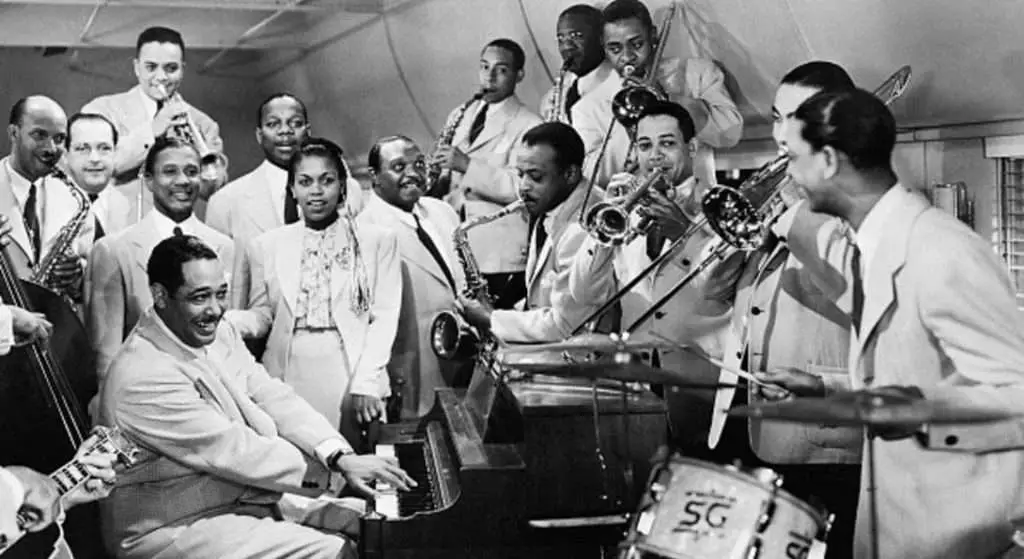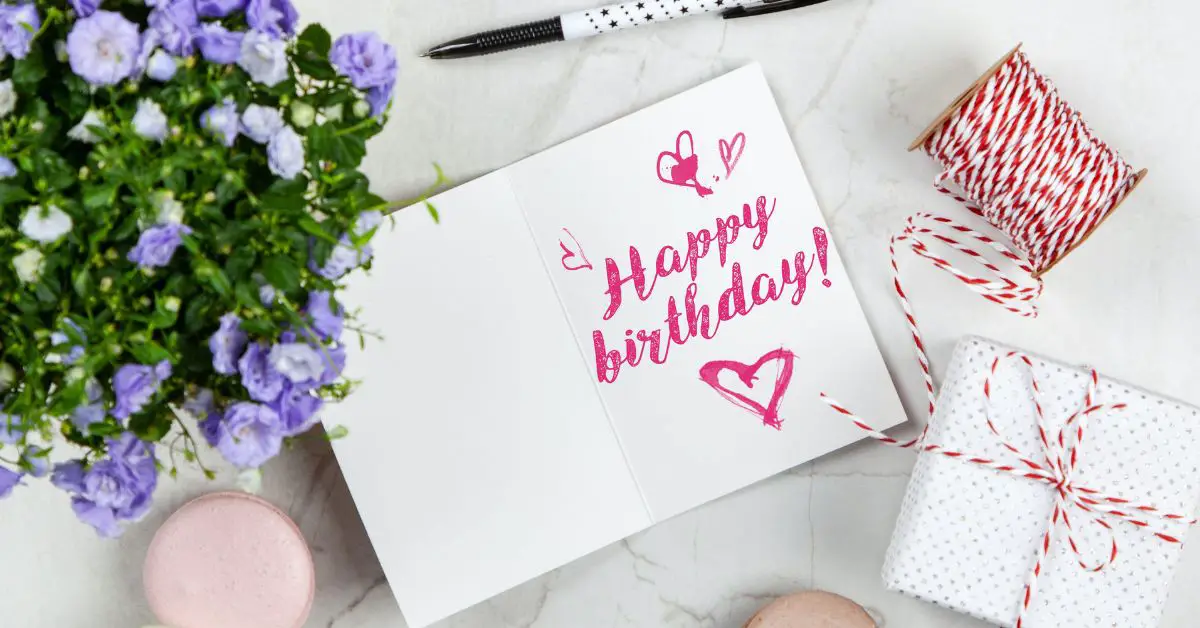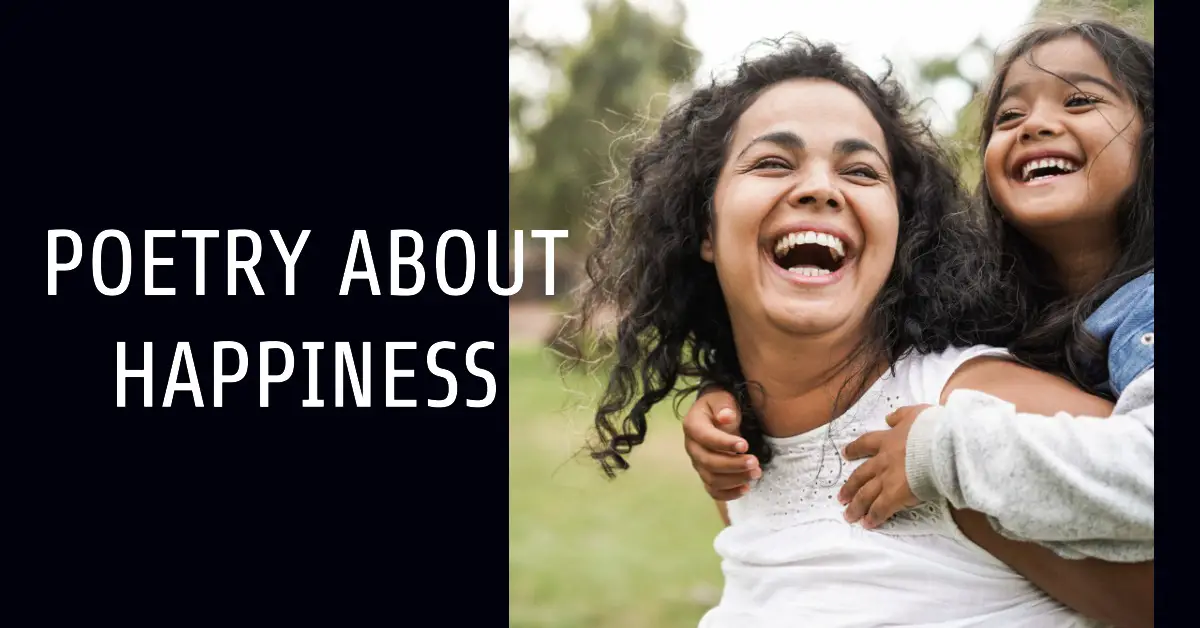Poems About Harlem

Poems about Harlem capture its history, culture, and the vibrant people who call it home. Harlem has been home to many famous people throughout the years, including jazz greats and legends like Langston Hughes and Duke Ellington.
Harlem is also a place where artists and poets found and continue to find inspiration and create some of their most famous works. Poems about Harlem are a testament to the unique spirit of this neighborhood and its residents. Harlem is a place that has been immortalized in poems and song lyrics for generations. It’s a melting pot of culture and history, and it’s full of soul. These historical poems are sure to move you.
Affiliate Disclaimer: This content contains affiliate links. When you buy through these links, I may earn an affiliate commission.
A brief analysis of I, Too
A short free-verse poem on racial identity within the white-dominant culture of the United States of America that encapsulates the enslavement and deprivation of black people as a result of human rights violations. The poem starts with that’s comparable to Whitman’s ‘I sing the body electric’ which some scholars suggest was the inspiration for this work.
I, Too
I, too, sing America.
I am the darker brother.
They send me to eat in the kitchen
When company comes,
But I laugh,
And eat well,
And grow strong.
Tomorrow,
I’ll be at the table
When company comes.
Nobody’ll dare
Say to me,
“Eat in the kitchen,”
Then.
Besides,
They’ll see how beautiful I am
And be ashamed—
I, too, am America.
A brief analysis of Smothered Fires
This is one of the iconic poems about Harlem. It tells the story of a female’s undying love set during the war. Her longing for him to return smolders like fire. The poem relates to life in general at that time. In general, when a spouse or companion is away from a location for an extended period of time, it creates an empty space. Consequently, the longing to reunite with that person is ignited.
Smothered Fires
By Georgia Douglas Johnson
A woman with a burning flame
Deep covered through the years
With ashes. Ah! she hid it deep,
And smothered it with tears.
Sometimes a baleful light would rise
From out the dusky bed,
And then the woman hushed it quick
To slumber on, as dead.
At last the weary war was done
The tapers were alight,
And with a sigh of victory
She breathed a soft—good-night!
A brief analysis of Joy in the Woods
In “Joy in the Woods,” Claude McKay is another well-known poems about Harlem that tries to convey the value of living in nature while highlighting the hardships of working and living in a biased society. Because the protagonist is forced to work in the third and fourth lines, the poem implies that class injustice devastates nature. His social standing makes him unable to fully appreciate the natural world.
Joy in the Woods
By Claude Mckay
There is joy in the woods just now,
The leaves are whispers of song,
And the birds make mirth on the bough
And music the whole day long,
And God! to dwell in the town
In these springlike summer days,
On my brow an unfading frown
And hate in my heart always—
A machine out of gear, aye, tired,
Yet forced to go on—for I’m hired.
Just forced to go on through fear,
For every day I must eat
And find ugly clothes to wear,
And bad shoes to hurt my feet
And a shelter for work-drugged sleep!
A mere drudge! but what can one do?
A man that’s a man cannot weep!
Suicide? A quitter? Oh, no!
But a slave should never grow tired,
Whom the masters have kindly hired.
But oh! for the woods, the flowers
Of natural, sweet perfume,
The heartening, summer showers
And the smiling shrubs in bloom,
Dust-free, dew-tinted at morn,
The fresh and life-giving air,
The billowing waves of corn
And the birds’ notes rich and clear:—
For a man-machine toil-tired
May crave beauty too—though he’s hired.
A brief analysis of Let America Be America Again
Langston Hughes has written many poems about Harlem. “Let America Be America Again” is an ode to the promise of equality and freedom that seemed so bright in his day, but now seem like a fading dream. He reflects on what has been accomplished by those before us-including Martin Luther King Jr., whose message of non-violence toward man inspired many people around the civil rights movement; yet it may also be said they were all killed sooner or later because there was no protecting their lives when bullets fly through the air.
Let America Be America Again
Let America be America again.
Let it be the dream it used to be.
Let it be the pioneer on the plain
Seeking a home where he himself is free.
(America never was America to me.)
Let America be the dream the dreamers dreamed—
Let it be that great strong land of love
Where never kings connive nor tyrants scheme
That any man be crushed by one above.
(It never was America to me.)
O, let my land be a land where Liberty
Is crowned with no false patriotic wreath,
But opportunity is real, and life is free,
Equality is in the air we breathe.
(There’s never been equality for me,
Nor freedom in this “homeland of the free.”)
Say, who are you that mumbles in the dark?
And who are you that draws your veil across the stars?
I am the poor white, fooled and pushed apart,
I am the Negro bearing slavery’s scars.
I am the red man driven from the land,
I am the immigrant clutching the hope I seek—
And finding only the same old stupid plan
Of dog eat dog, of mighty crush the weak.
I am the young man, full of strength and hope,
Tangled in that ancient endless chain
Of profit, power, gain, of grab the land!
Of grab the gold! Of grab the ways of satisfying need!
Of work the men! Of take the pay!
Of owning everything for one’s own greed!
I am the farmer, bondsman to the soil.
I am the worker sold to the machine.
I am the Negro, servant to you all.
I am the people, humble, hungry, mean—
Hungry yet today despite the dream.
Beaten yet today—O, Pioneers!
I am the man who never got ahead,
The poorest worker bartered through the years.
Yet I’m the one who dreamt our basic dream
In the Old World while still a serf of kings,
Who dreamt a dream so strong, so brave, so true,
That even yet its mighty daring sings
In every brick and stone, in every furrow turned
That’s made America the land it has become.
O, I’m the man who sailed those early seas
In search of what I meant to be my home—
For I’m the one who left dark Ireland’s shore,
And Poland’s plain, and England’s grassy lea,
And torn from Black Africa’s strand I came
To build a “homeland of the free.”
The free?
Who said the free? Not me?
Surely not me? The millions on relief today?
The millions shot down when we strike?
The millions who have nothing for our pay?
For all the dreams we’ve dreamed
And all the songs we’ve sung
And all the hopes we’ve held
And all the flags we’ve hung,
The millions who have nothing for our pay—
Except the dream that’s almost dead today.
O, let America be America again—
The land that never has been yet—
And yet must be—the land where every man is free.
The land that’s mine—the poor man’s, Indian’s, Negro’s, ME—
Who made America,
Whose sweat and blood, whose faith and pain,
Whose hand at the foundry, whose plow in the rain,
Must bring back our mighty dream again.
Sure, call me any ugly name you choose—
The steel of freedom does not stain.
From those who live like leeches on the people’s lives,
We must take back our land again,
America!
O, yes,
I say it plain,
America never was America to me,
And yet I swear this oath—
America will be!
Out of the rack and ruin of our gangster death,
The rape and rot of graft, and stealth, and lies,
We, the people, must redeem
The land, the mines, the plants, the rivers.
The mountains and the endless plain—
All, all the stretch of these great green states—
And make America again!
A brief analysis of No Images
The brown girl is not aware that she has beauty and glory. Acculturation into a white society has caused this, as well as economic poverty which sets the standard for what women are valued. In America, the issues stem from internalized racism born out of the colonialist mentality.
Cuney Wrote many poems about Harlem, but in this one, the protagonist feels like something is wrong with herself. There was never an opportunity given throughout her life until now when all eyes seem focused on how wonderful it feels being seen purely based on color alone rather than physical attraction
.
No Images
By William Waring Cuney
She does not know
her beauty,
she thinks her brown body
has no glory.
If she could dance
naked
under palm trees
and see her image in the river,
she would know.
But there are no palm trees
on the street,
and dish water gives back
no images.
A brief analysis of Harlem (A Dream Deferred)
Harlem (A Dream Deferred) is a masterpiece, another of Hughes’s poems about Harlem. The poem is divided into three sections. The short poem poses questions about the desires and expectations of a people and the repercussions that might ensue if these ambitions and aims are not achieved. There is an emphasis on poetic form, specifically simile, where one thing is compared to another.
Harlem (A Dream Deferred)
By Langston Hughes
What happens to a dream deferred?
Does it dry up
like a raisin in the sun?
Or fester like a sore—
And then run?
Does it stink like rotten meat?
Or crust and sugar over—
like a syrupy sweet?
Maybe it just sags
like a heavy load.
Or does it explode?
A brief analysis of Heritage
This is another well-known poem from the category of black writing of poems about Harlem written at the peak of the Harlem Renaissance, a period in which the Black community was ignited by very empowering literature. Bennett’s inspiration for Black empowerment can be seen in the poem. She strives to make her addressed addressees, African-American teenagers, feel proud of their inherent features. She begins by encouraging people to love their skin color, I love you for you.
Heritage
I want to see the slim palm-trees,
Pulling at the clouds
With little pointed fingers …
I want to see lithe Negro girls,
Etched dark against the sky
While sunset lingers.
I want to hear the silent sands,
Singing to the moon
Before the Sphinx-still face …
I want to hear the chanting
Around a heathen fire
Of a strange black race.
I want to breathe the Lotus flow’r,
Sighing to the stars
With tendrils drinking at the Nile …
I want to feel the surging
Of my sad people’s soul
Hidden by a minstrel-smile.
Conclusion
Harlem has been a cultural and literary center for many years. These seven Poems About Harlem are just a small representation of the influential poetry that has come out of this iconic neighborhood and period in American history. If you’re interested in reading more about Harlem, or if you want to explore some of the most important poetry in history, be sure to check out these seven poems.

